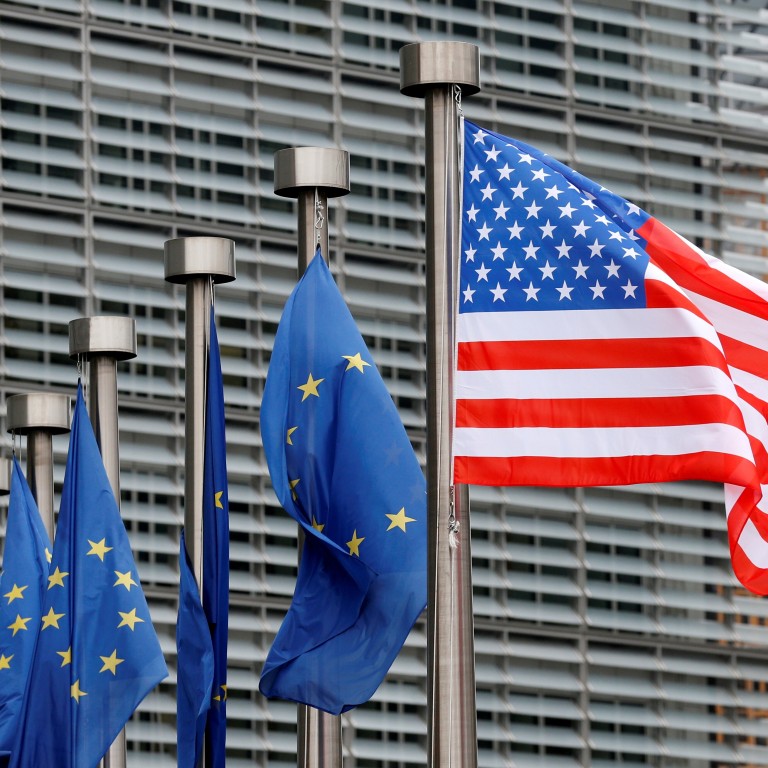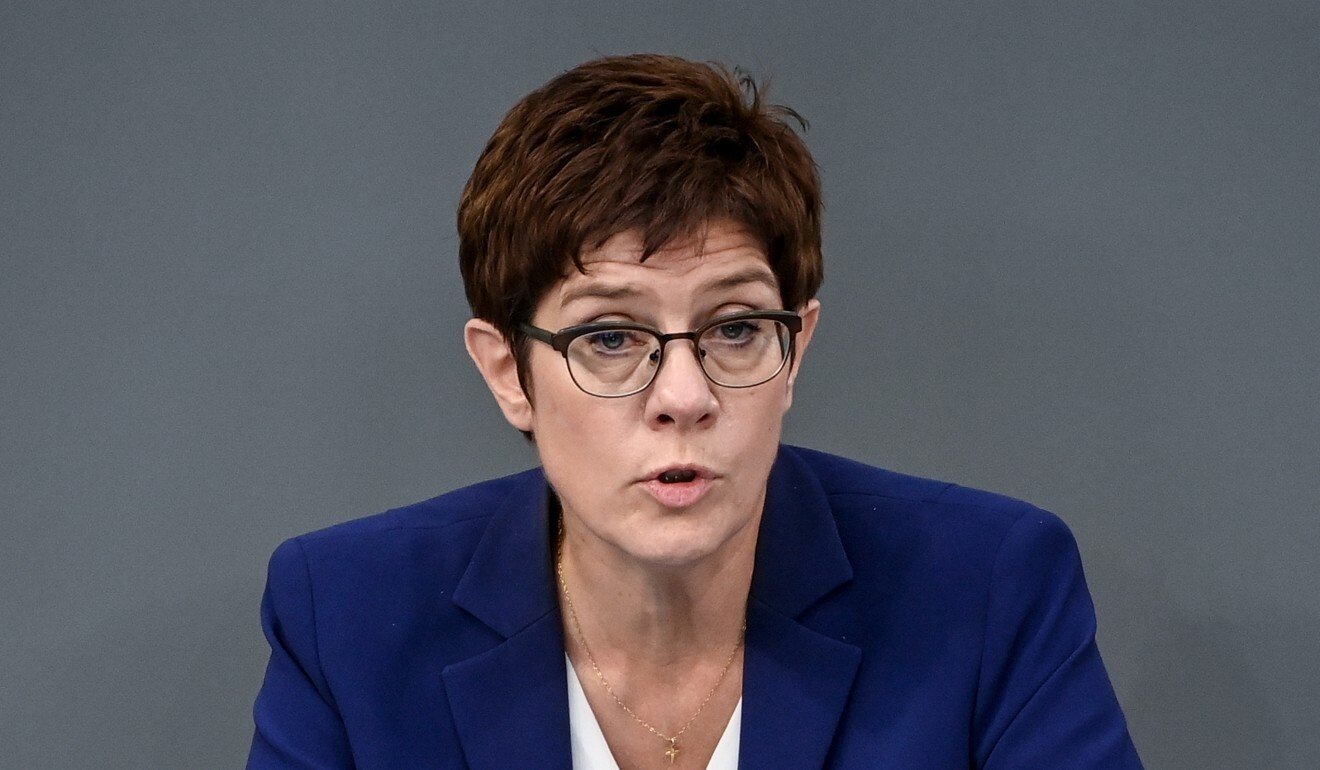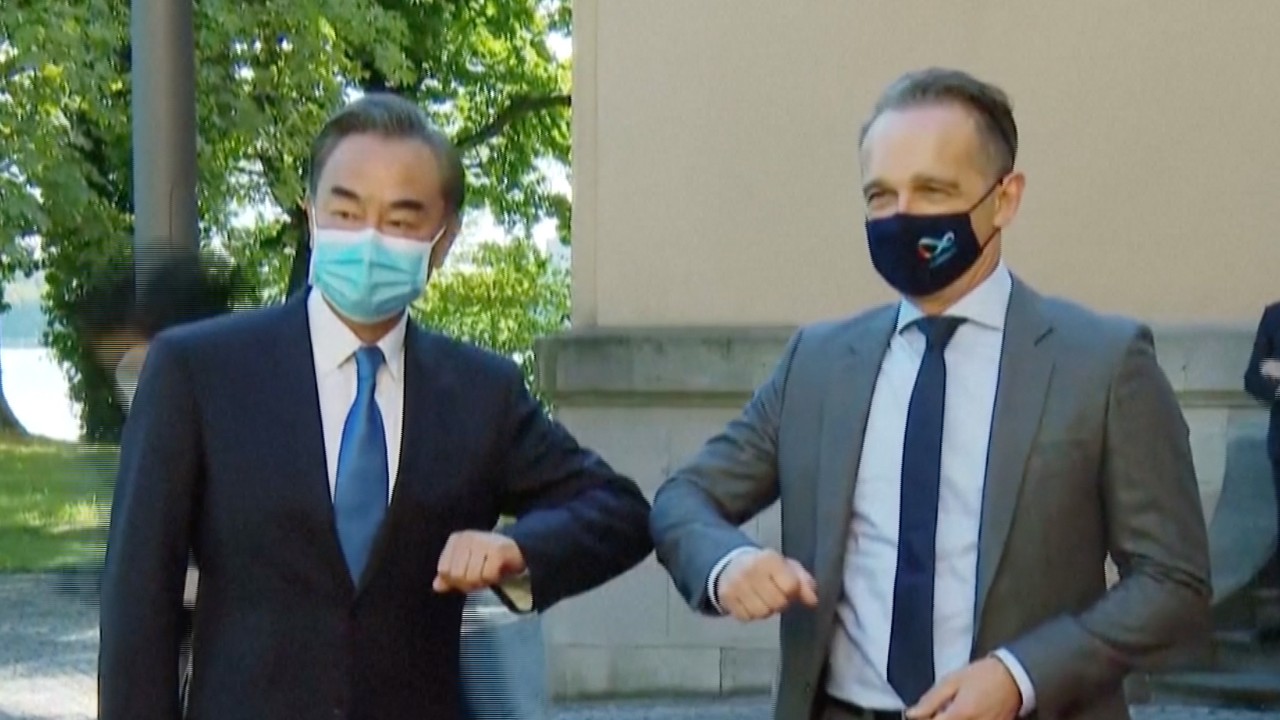
German politicians call for US, Europe to form united front on China
- Defence chief Annegret Kramp-Karrenbauer suggests a ‘newly strengthened Western trade alliance’
- And top diplomat Heiko Maas says future of transatlantic relations will be ‘determined by the right way of dealing with Beijing’

Calling herself an “Atlanticist”, however, German Defence Minister Annegret Kramp-Karrenbauer on Saturday suggested building a “newly strengthened Western trade alliance” in response to Chinese practices.
“German interests – and those of Europe – need an order that can counter both dangers to liberal trade: the aggressively directed state capitalism of China and the temptation for unilateral isolation and decoupling that we are currently observing in Washington,” she said.
“I therefore suggest that we take on the challenge of global competition from a newly strengthened Western trade alliance,” she said, adding that it would not be a “crazy idea” for the EU and the US to eliminate all tariffs and trade barriers between them.
Biden win could restore US-EU partnership for coordinated approach to China
“As a leading export nation, we Germans see with great concern how China has positioned itself on international trade issues,” said Kramp-Karrenbauer, the outgoing chairwoman of the ruling Christian Democratic Union.
She said those concerns included China’s long-standing currency manipulation, aggressive appropriation of intellectual property, unequal investment conditions, and the state-subsidised distortion of competition.

02:56
Germany presses China on Hong Kong security law, seeks access to Uygurs in Xinjiang
Mikko Huotari, head of the Mercator Institute for China Studies, a Berlin-based think tank, said the overall tone on China had turned “very critical in Germany, especially during the last 12 months”.
“I would expect the post-[Angela] Merkel China policy, irrespective of who will succeed her, to offer a more critical perspective on China,” Huotari said.
Chancellor Merkel will not run for a fifth term in next year’s election, while Kramp-Karrenbauer, once seen as her possible successor, is set to step down from the CDU leadership in December.

A day after her remarks, Foreign Minister Heiko Maas said the future of transatlantic relations would be “determined by the right way of dealing with China”.
“Washington sees the great strategic challenge of this century in the rise of China, across all party lines. The next US administration will therefore also redirect political and military capital there,” Maas wrote in the Welt am Sonntag newspaper.
Why China’s coronavirus response has fuelled hostility in the West
“Some may see this as an automatic weakening of the transatlantic relationship. For me, on the other hand, the shaping of our relations with China holds the opportunity for new transatlantic cooperation – because Americans and Europeans share an interest in open societies, human rights and democratic standards, fair trade, free sea routes and the security of our data and our intellectual property,” he wrote.
“If we want to get China to adhere to such international standards, then the US can also benefit from the EU’s role as Beijing’s largest trading partner. And if we speak with one voice in the World Trade Organization instead of imposing tariffs on each other, then we can also set new standards there, for example with regard to forced technology transfers or the dealings with state-owned companies.”
Maas also said the split between the US and the EU caused by Trump’s presidency benefited only outside powers.
“After four difficult years, it is time for a fresh start in the transatlantic partnership, because the beneficiaries of our differences are in Beijing and Moscow, in Tehran and Pyongyang.”

